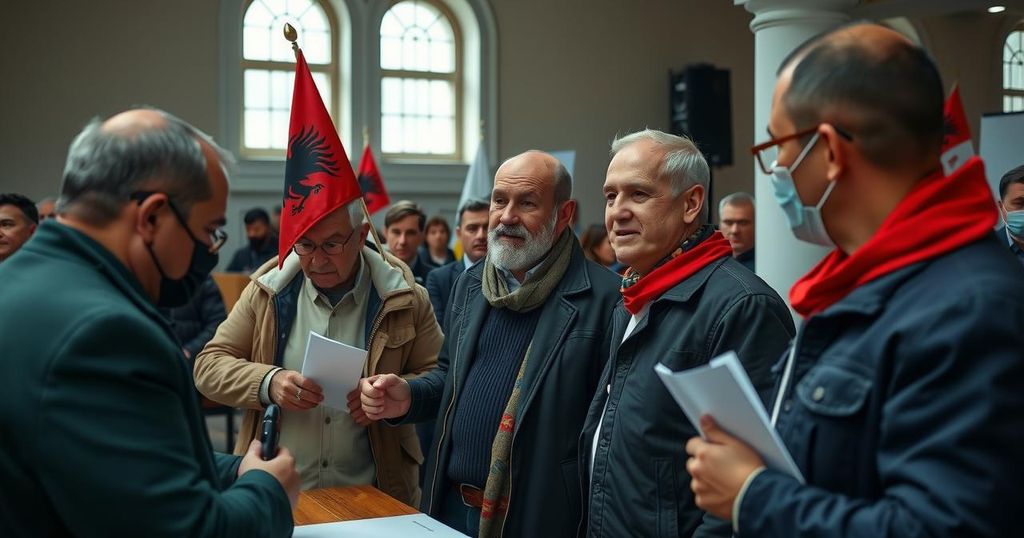Albania to Allow Expatriates to Vote in Upcoming Parliamentary Elections

Albania’s President has set May 11 for parliamentary elections, enabling expatriates for the first time to vote. A total of 140 representatives will be elected amid persistent political unrest and allegations of corruption against the ruling Socialist party. Meanwhile, calls for reform and political dialogue continue as the nation pursues EU integration.
Albania’s President has officially designated May 11 as the date for the forthcoming parliamentary elections, marking a historic moment whereby Albanians residing abroad will cast their votes for the first time. This significant reform allows emigrants, estimated at 3.6 million potential voters despite an official population of approximately 2.4 million, to participate electronically or via mail in the electoral process. The upcoming elections will determine 140 representatives who will serve four-year terms, amidst a backdrop of political turmoil and allegations of corruption against the ruling party.
Political dynamics in Albania have been characterized by ongoing protests led by the opposition, particularly against Prime Minister Edi Rama and his Socialist party, which faces allegations of election manipulation and corruption. The opposition coalition, led by the Democratic Party, has accused the government of politically motivated arrests. Such tensions have sporadically escalated to violence since the Democrats lost power in 2013, voicing demands for a nonpartisan caretaker government prior to the 2025 elections.
The introduction of absentee voting for Albanians abroad represents a significant development in Albania’s electoral framework. Historically, Albanians living overseas have been excluded from direct participation in their country’s parliamentary elections. This change comes amidst a series of political crises and protests, with persistent allegations of corruption. Moreover, ongoing dialogues with the European Union have scrutinized Albania’s adherence to democratic norms and the rule of law, while Prime Minister Rama has expressed ambitions for EU membership by 2030.
The parliamentary elections scheduled for May 11 illustrate a pivotal moment for Albania, allowing expatriates to influence their home country’s governance. This reform, however, occurs within a complex political environment plagued by accusations of corruption and the need for democratic integrity. As political tensions persist and the opposition navigates its strategies, the international community remains hopeful that constructive dialogue can foster stability and progress toward EU integration.
Original Source: abcnews.go.com








